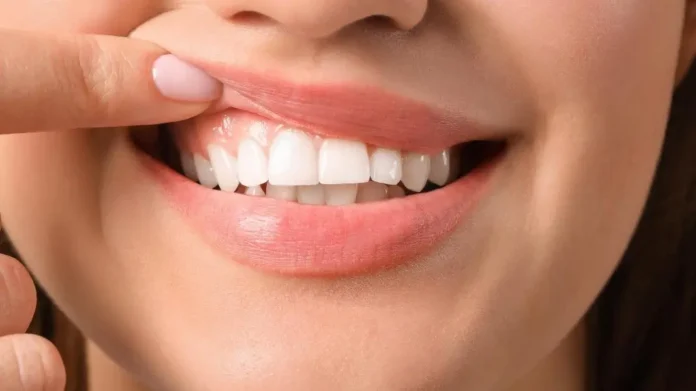Celebrity Receding gums can be more than just a cosmetic issue; they can be a portal to various oral health challenges. This condition, which occurs when the margin of the gum tissue surrounding the teeth wears away or pulls back, exposes more of the tooth or the tooth’s root. Gums that have receded significantly can lead to tooth sensitivity, make your teeth appear longer than normal, and even lead to tooth loss.
Causes of Receding Gums
Receding gums are most commonly caused by several factors:
- Gum Disease: Bacterial gum infections destroy gum tissue and the bone that holds your teeth in place.
- Poor Oral Hygiene: Inadequate brushing, flossing, and rinsing with mouthwash allow plaque to turn into calculus—a cause of gum recession.
- Genetics: Some people may be more susceptible to gum disease, regardless of their oral care habits.
- Teeth Grinding: Bruxism can put excessive force on the teeth, leading to gum recession.
Effects of Badly Receding Gums
Beyond the obvious aesthetic concerns, which can be particularly troubling for celebrities always in the public eye, badly receding gums can have serious health implications:
- Tooth Sensitivity: Exposed tooth roots are susceptible to hot and cold temperatures, making eating and drinking a painful affair.
- Tooth Loss: Loss of gum tissue can weaken the support for your teeth.
- Gum Infections: Openings form between the gums and teeth, harboring infectious bacteria.
- Aesthetic Concerns: Gums help define your smile—a receding gum line affects overall facial aesthetics.
Treatment Options
Treatment for receding gums typically depends on the cause of the gum loss. Options include:
- Non-surgical treatments:
- Scaling and root planning to deep clean under the gumline
- Antibiotics to address any lingering bacterial infections
- Antimicrobial mouthwash to reduce bacteria growth
- Surgical treatments:
- Gum grafting, where tissue is taken from elsewhere and attached to the area needing repair
- Pocket depth reduction, where the dentist folds back the gum tissue, removes bacteria from the pockets, and then secures the tissue in place
- Regeneration procedures, if the bone supporting your teeth has been destroyed
Home Remedies and Prevention
To help prevent or slow the progression of gum recession:
- Adopt proper oral hygiene practices by brushing twice a day, flossing daily, and using mouthwash.
- Use gentle brushing techniques to avoid damaging the gum tissue.
- Choose a soft-bristled toothbrush for its gentler effects on gums and tooth enamel.
- Ensure you have regular dental check-ups for professional cleaning and to monitor gum health.
Case Studies and Success Stories
Many celebrities have faced the challenge of receding gums but managed to restore their smiles. These high-profile cases often don’t make the headlines, as dental surgeries are private matters. However, these success stories highlight the advancements in dental treatment, providing hope that with the right care and intervention, receding gums can be addressed effectively.
Conclusion
Receding gums are a condition that demands attention; early intervention and treatment are crucial. Don’t wait until your situation becomes an emergency—monitor your oral health carefully and visit your dentist if you suspect your gums are receding. In some cases, natural remedies and improved oral care can mitigate milder cases of gum recession. But if you’re facing severe receding gums, professional help is essential. Your smile—and your health—are worth the effort.













